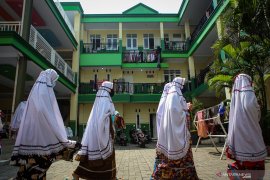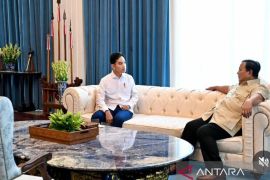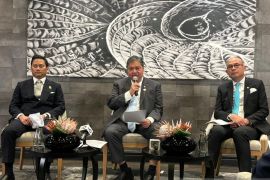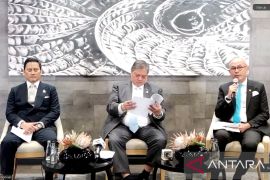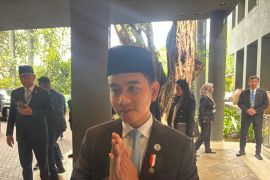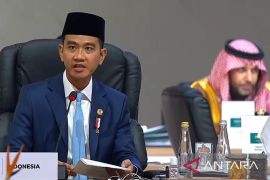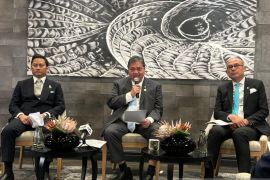This intangible cultural heritage applies to every aspect of people's lives. Be it weddings, deaths, building a home, to building a place of worship—everything is done together. This is not exclusive to just one region, and can be seen nationwide.
The Minahasa people are familiar with Mapalus culture. In the book Baku Beking Pande by H.N. Sumual, it is explained that the word Mapalus was derived from the word palus, which means to pour and exert.
Thus, Mapalus means attitudes and actions that are based on an awareness of the necessity to carry out activities by gathering the power or strength of the community to get optimal results.
A Minahasa tribe member, Mesyia, said that the Mapalus culture is deeply ingrained and inseparable from community activities. The culture originated in the agricultural sector, where everyone works together to plant and harvest agricultural products.
On a set day, each community member comes to a designated location and works until the appointed time. If someone is absent, that person is punished.
Over time, the activity has extended to other events as well, such as deaths, marriages, even to building houses, the tribe members said.
Mapalus is not limited to contributing energy: but food or money donations are also included in the concept. The Mapalus culture has survived to this day and has been adopted by most people of North Sulawesi.
Mesyia said that the culture is so deeply ingrained that buildings in Manado always have a room called Mapalus.
Beganjal
The Minahasa know gotong royong in a different context, the same is the case for people in the Riau Islands. The Malay people of the Riau Archipelago term it Beganjal, a timeless tradition of mutual cooperation. It involves people collectively making preparations for weddings and other activities.
A Tanjung Pinang resident, Niko Pratama, said that people who contribute do not get paid. The host only prepares meals and drinks, he elaborated.
Pratama stated that the people make preparations leading up to the D-day of the event, such as cooking, preparing food seasonings, and shopping. Not only men, women are also involved in this tradition.
Meanwhile, the Malay community in Bangka Belitung knows it as the Nganggung tradition, or Sepintu Sedulang. The name originates from the custom under which each house (sepintu, literally "a door") brings at least one tray or pan (sedulang, literally "a tray”) to bring food to religious events, weddings, or thanksgiving after the harvest.
Sungai Liat resident, Farida, said that under the Nganggung tradition, people bring food to the masjid or village hall. Each house provides side dishes, cakes, and fruit in a food container. This tradition is also carried out at other social events related to the interests of the village members.
Farida stated that at the regional level, gotong royong as a tradition is still very strong, which is different from metropolitan cities where the tradition has faded away due to busy lives.
According to director general of culture at the Education, Culture, Research and Technology Ministry, Hilmar Farid, gotong royong values form Indonesia’s invaluable and intangible cultural heritage. They must be collectively fostered to prevent them from being lost.
Farid said that the spirit of gotong royong could determine how quickly people resolve all the issues they are facing. The ability to collaborate and put differences aside is also required.
Gotong royong as a mindset must be taught through actual practice, and not just discourse. This can be done through activities involving collaboration at the school, family, and community levels.
He opined that hard times truly test if people uphold the value of gotong royong. During the COVID-19 pandemic, Indonesian people showed their mutual cooperation even more than usual.
Likewise, when disasters occur in several areas, people work together to alleviate the pain. Not only in the form of manual help, but also time, food, and money.
With the spirit of gotong royong, people can easily get through the most difficult of times. It has also enabled people to rise together against hardships caused by the COVID-19 pandemic.
"This pandemic has made us aware that our nation's cultural values, such as mutual cooperation, are indispensable (in our efforts) to recover and rise together," said Hilmar.
Even Indonesia’s G20 Presidency has raised the theme "Recover Together, Recover Stronger.” The theme was inspired by gotong royong, one of the Indonesian people's basic values, which has grown to become the nation's culture.
The noble values of the Indonesian people have become the basic foundation for the G20 Education Working Group (EdWG) for solving global education and cultural problems. The G20 Forum is a momentum for Indonesia to work together with its members to address inequality in access to good education in post-pandemic recovery.
Related news: Govt removes Gotong Royong vaccination rules for paid inoculation
Related news: Rumah Oksigen Gotong Royong opens doors to patients needing oxygen
Translator: Indriani, Mecca Yumna
Editor: Sri Haryati
Copyright © ANTARA 2022

